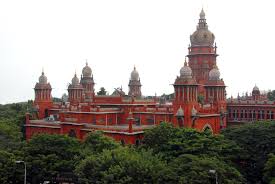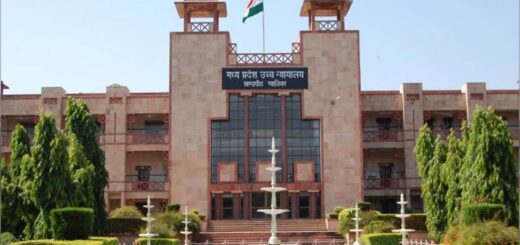The Madras High Court has ruled that the state cannot control activities within private spaces, ordering the return of the Bharat Mata statue taken from the BJP office.

The Madras High Court ordered the authorities in Virudhunagar district to return a statue of Bharat Mata (Mother India) that was wrongfully taken from the Bharatiya Janata Party (BJP) office in Kottaipatti village. This decision followed a request from the BJP, led by District President G. Pandurangan, asking for the statue’s return and to stop any further interference with their right to place the statue at their office. The statue had been set up by the BJP but was removed by officials who cited state guidelines on statue installations. Justice N. Anand Venkatesh noted that while public statue installations need prior approval from state authorities, these rules do not apply to private spaces like homes or offices. He stated, “It is not the role of the State and its officers to manage what happens in a citizen’s private area. Such actions are constitutionally prohibited.”
The Court criticized how the authorities took the statue, suggesting their actions were influenced by outside pressure. The Court remarked, “I firmly believe that the respondents unlawfully removed the statue of Bharatha Matha from private property, likely due to external pressure. This behavior is highly unacceptable and should not happen again. We live in a welfare State governed by the Rule of Law. Therefore, such overreach cannot be accepted by a Constitutional Court acting under Article 226 of the Constitution of India.”
The court emphasized that placing a Bharat Mata statue in a private area, like a garden or office, is a personal and meaningful act that shows respect for the country. It represents patriotism, unity, and national pride, encouraging thoughts about freedom, resilience, and cultural identity. Such displays are similar to personal shrines and should not face unnecessary restrictions or removal by the government, especially on private property. The ruling also pointed out the essential duty of citizens under Article 51-A of the Indian Constitution, which encourages promoting love and respect for the nation. The court stated, “No reasonable person could argue that showing patriotism and love for one’s country threatens the interests of the State or community. In fact, the opposite is true, as the Constitution urges citizens to uphold these values as part of their Fundamental Duties under Article 51-A.”
The court confirmed that setting up a Bharat Mata statue on private property does not threaten public order or community feelings. It noted, “Installing a Bharat Mata statue in a private space is a personal and symbolic gesture that shows an individual’s love for their homeland. Unlike public figures, whose statues may need permission due to their potential effects on public sentiment, a statue representing cultural and national identity in a private area should be viewed differently. While it’s important to consider local laws and community feelings, honoring Bharat Mata is fundamentally an expression of love and pride, reminding us of the values and sacrifices tied to our heritage.”
The Madras High Court decided in favor of the BJP, ordering local officials to give back the seized statue to the party. The Court highlighted that putting up statues in private areas should be allowed as a way to express personal beliefs and love for the country, without unnecessary government interference.
Cause Title: Bharathiya Janatha Party v. The District Collector & Ors., [2024:MHC:3835]
Appearance:
Petitioner: Senior Advocate Ananda Padmanaban for Vanangamudi
Respondents: Additional Advocate General Veerakathiravan and Additional Public Prosecutor S.Ravi









